Stop What You’re Doing And Read This! : Summary
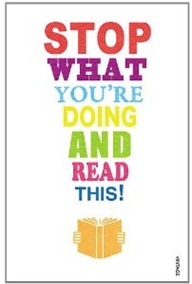
The preface to this book gives a reason behind the title for this book,
This year we learnt that there are many thousands of children across Britain who cannot read competently, that there are thousands who leave primary school unable to put together basic sentences. One in three teenagers reads only two books a year, or fewer, and one in six children rarely reads books outside of the classroom. Many parents do not read stories to their children, and many homes do not have books in them. Stories and poems, for these thousands of children, are not a source of enchantment or excitement. Books are are associated with school, or worse – they are associated with acute feelings of shame and frustration.
The ten people who have contributed to this book are from very different backgrounds. Some grew up with a multitude and variety of wonderful books within their reach; some had parents who imparted to them a fierce desire for books and for learning; for others, books were hard to come by, or even illicit. But all ten are united here in a passionate belief in the distinctive and irreplaceable pleasures and powers of reading. They describe a poem as a lifeline, a compass, or literature as the holding place of human value.They each contend that books are not just for the classroom, but must be made easily available beyond it, because great books are essential to a richer quality of life. These writers know that learning to read transformed their very brains, and that literature has helped them to express their questions and ideals, and molded their imagination and sense of self. This book is a manifesto. In a year of rude awakenings to low levels of literacy and a widespread apathy towards books and reading, this book demands an interruption. Stop What You’re Doing and Read. Read these essays, because they aim to convince you to make reading part of your daily life.
In this post, I have tried listing down some of the remarks/statements/quotes that I have found interesting in the ten essays penned in the book.
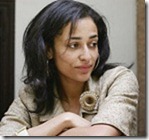 Zadie Smith
Zadie Smith
-
I have spent a lot of time in libraries. To go somewhere to study, because you have chosen to, with no adult looking over your shoulder and only other students for support and company – this was a new experience for me.
-
I came to understand why silence is necessary for serious study, and what the point of coffee is.
-
You might discover how quickly an afternoon with a toddler passes in a local library, quicker than practically anywhere else. You might realize that giving up smoking or writing a novel is easier to do when you are one of a group of people all seated on some fold-up chairs in a circle. It might strike you that what you really want in life is silence. Despite the many wonders of the Internet, you might suddenly long for the smell of the old books.
![2C__Cauldron_Books_Reviews_stop_doing_what_you_are_doing_and_read_this_for_blog_blake_morrison[4] 2C__Cauldron_Books_Reviews_stop_doing_what_you_are_doing_and_read_this_for_blog_blake_morrison[4]](images/2c__cauldron_books_reviews_stop_doing_what_you_are_doing_and_read_this_for_blog_blake_morrison4_.jpg) Blake Morrison
Blake Morrison
-
The best books give us a lifeline, a reason to believe, a way to breathe more freely.
-
The existence of the text is a silent existence, silent until the moment in which a reader reads it. Only when the able eye makes contact with the markings on the tablet does the text come to active life. All writing depends on the generosity of the reader.
-
It takes courage to own up dark thoughts and dangerous feelings. But poetry – the most intimate yet public of forms – is the ideal place.
-
Poetry is a serious business, but it isn’t solemn or funereal. All it insists on is that we read carefully, with concentration. The shortening of lines is a signal to slacken our pace.
-
Reading catatonically can become a way of coping with travails. To read so as to limit the power that the real world has over us.
-
When you are deep into a book, it’s for yourself alone, But once you’ve finished, if it’s any good, you want to share it with others – rehearse the story, assess the characters, discus what makes the book special. Children do this instinctively, and the growth of book clubs, reading groups and blogs reflects a continuing and perhaps increasing need for adults to share books in this way.
-
Don’t build a canon( reading list) just for the heck of it. Read at whim and don’t be intimidated by experts
-
Sometimes we find places that are very comforting just like books. We tend to keep these places a secret so that it doesn’t get ruined when a lot of people discover it. Books are NOT like that. We have no investment in keeping it to ourselves. Share them. The world will be the better for it.
 Carmen Callil
Carmen Callil
-
“Live always in the best company when you read”.This my and mother I did: we read for company
-
To this day, I do not move outside the house without a book; inside my house they are my paintings, my decorations, my fellow travellers and my comfort.
-
Books are shields against a terror of boredom, that curse of most childhoods
-
Books are like gardens; a Kindle or an iPad is like a supermarket- it makes life easier, but one doesn’t want to loiter in it. You can fiddle with books. Like gardens, they can be wonderful to look at.
 Tim Parks
Tim Parks
-
Only the sequence of signs matter. The writing is in the sequence of the signs. This is the one thing that we can’t change. The experience is the sequence. The experience is not in any one moment of perception, but in the movement through the sequence from beginning to end, at our own speed, with interruptions.At beginning of each sentence we are projected towards the end. At the end we have the momentum of the beginning. Same with the paragraph, same with the chapter, same with the whole book, may be the trilogy. The beginning requires the end, the end the beginning. We are locked into a journey.
-
It’s learning how to take intense pleasure in reading that makes it so useful. There are two pleasures in reading, one enchantment and second , awareness of the same. Two seemingly diverse experiences make any reading a pleasure.
-
Life is simply too short to read the wrong books, or even the right books at the wrong time.
-
So, this novel, which was definitely not what you were looking for, now turns out to be exactly what you needed. It has allowed you to discover something new about yourself, because you were watching your reaction as you read it.
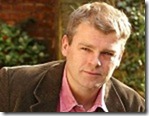 Mark Haddon
Mark Haddon
-
It also occurs to me that whilst I read different books these days, my reasons for reading have changed very little. It’s the thrill of being transported to another world.
-
Select the right words and put them in the right order and you can run a cable in to the hearts of strangers. Strangers in China, strangers not yet born.
-
Books are like people. Some look deceptively attractive from a distance, some deceptively unappealing , some are easy company, some demand hard work that isn’t guaranteed to pay off. Some become friends and some stay friends for life. Some change in our absence - or perhaps it’s we who change in theirs - and we meet up again only to find that we don’t get along any more. Unlike people, one can at least dump them or hand them to a friend without causing offense or feeling guilt.
-
I am always in search of novels that understand and articulate precisely what it feels like to be a human being.
-
Lay the novel alongside film and its specialness becomes obvious. Film promises everything. Ancient Rome, dinosaurs, talking dogs, car chases, sex, Mars, vampires… Such a boundless cornucopia that we forget what it can’t do. It can’t do smell or taste or texture. It can’t tell us what is is like to inhabit a human body. Its eyes are always open. It fails to understand the importance of the things we don’t notice. It can’t show those long stretches of time when we are seeing nothing at all, just drifting in our own minds.
-
The sense of being inside looking out, of seeing a world that belongs to everyone, but is nevertheless yours alone. It is this uncrossable gulf between me and not-me, between my private experience and yours, which lies at the heart of being human and which no other medium can touch, and this border is where the novel lives and moves and has its being.
-
Talking about reading as the cause of anything is to get things back to front. Reading is primarily a symptom. Of a healthy imagination, of our interest in this and other worlds, of our ability to be still and quiet, of our ability to dream during daylight.
-
If we want more people to enjoy better books, whatever that means, we should concentrate on the things that prevent people reading. Poverty, poor literacy, library closures, feelings of cultural exclusion. Alleviate any of these problems and reading will blossom. These are real threats, not technology, not the pervasive and risking fear that readers are being tempted else where by the shallow pleasures of Britain’s got talent.
-
Novel is just the right words in the right order.
-
Films and television programs, plays and paintings and sculptures never really become friends in the way that novels do. We can admire, we can be impressed, we can be moved and consoled, but we rarely feel that peculiarly personal attachment we feel to a loved novel, because whilst writing novels is a long and solitary business, reading them is always a collaboration, and a good writer gives the reader space and encouragement to play their part so that when we close the final page, we have had an experience that is partly of our own making.
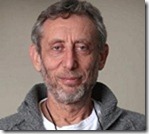 Michael Rosen
Michael Rosen
-
I can’t really sort out who’s who, real or imaginary, and I think this is how we all read when we have time and space to think about books.
-
Dickens told us about a Miss Havisham whom he created, but when many of us read about that Miss Havisham, we bring her to life with the Miss Havishams we know in our lives.
-
My father’s performance had given such life to the characters that their vocabulary became ours, and they could now live with us on the campsite, and , it turned out, beyond, for years after.
-
Part of the power of stories is the way in which we can see facets of this or that fictional person in the people we know, and scenes from the fictional world have echoes in the events of the real world.
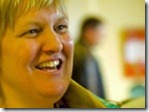 Dr.Jane Davis
Dr.Jane Davis
-
You think of reading as an individual, even a solitary activity, one that you want to defend as such, because usually, for devoted readers, the act of reading is deeply private. I’m going to argue, though, that even highly proficient readers might want to try shared reading, which is in equal measure about books and people. It isn’t just about getting non-readers in to reading; it is about building relationships out of communal meanings. Sharing a books is a multiplier, as anyone who has ever read, night after night, to a story-besotted child will know.It is about mutual recognitions, sharing of selves.
-
Read the poem alone and you have your own experience and imagination to touch the poem in to life. Read it with six others and you have six lives and six imaginations with which to inhabit this flexible human-shaped space.
-
Over the last 100 or so years, the loss of religious as a reputable discourse in common life has led to a poverty of language and this to a poverty of contemplative thought and feeling about what we are, and what we need. We need some inner stuff, scaffolding to help us get around our inner space, something to help us map, explore and even settle those places where we are still primitive.
-
What is that part of being human which is touched by silence, which recognizes an intense atmosphere when people are moved, which gets scared or exhilarated when alone in a big space, or when faced with a newborn baby? Science may gradually work this out that is our mainstream model these days for accredited seriousness, for what we can be confident in believing. But literature- too often now dismissed or misplaced - has always known that buried part, and in thousands of ways.
-
What people instinctively know, and science is beginning to understand, is that what makes people happy, above all, is a network of supportive fellow creatures, a sense of purpose, challenge and meaningful occupation. Shared reading can provide all this. Get a few people together, pick up a good book and try it.
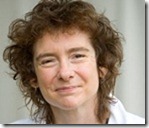 Jeanette Winterson
Jeanette Winterson
-
There are two dominant modes of experience offered to us at present - actual( hence our appetite for reality TV, documentaries and “true-life” drama) and virtual- the Web. Sometimes these come together as in bizarre concept of Facebook : relationships without the relating. Reading offers something else; an imaginative world.
-
To cross the threshold of a book is to make a journey in total time. I don’t think of reading as leisure time or wasted time and especially not as downtime. The total time of a book is more like uptime than downtime, in the way that salmon swim upstream to get home.
-
Reading is becoming a casualty of the surf-syndrome of the web. Reading is not skimming for information. Reader is a deeper dive. Or a high climb. Nan Shepherd talks about the exhilaration of altitude. The air is thinner. The body is lighter. But you have to acclimatize. You have to acclimatize yourself to books.
-
The consequences of homogenized mass culture plus the failure of our education system and our contempt for books and art, mean that not reading cuts off the possibility of private thinking, or of a trained mind, or of a sense of self not dependent on external factors.
-
A trained mind is a mind that can concentrate. Attention Deficit Disorder is not a disease; it is a consequence of not reading. Teach a child to read and keep that child reading and you will change everything. And yes, I mean everything.
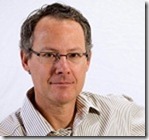 Nicholas Carr
Nicholas Carr
-
For Emerson, the best books – the “true ones” – “take rank in our life with parents and lovers and passionate experiences, so medicinal, so stringent, so revolutionary ,so authoritative”.
-
Books are not only alive; they give life, or at least give it a new twist.
-
The groups of nerve cells , or neurons, that are activated in the brains of readers closely mirror those involved when they perform, imagine or observe similar real-world activities
-
When we open a book, it seems that we really do enter, as far as our brains are concerned, a new world – one conjured not just out of the author’s words, but out of our own memories and desires – and it is our cognitive immersion in that world that gives reading its rich emotional force.
-
In our day-to-day lives we are always trying to manipulate or otherwise act on our surroundings, whether it’s by turning a car’s steering wheel or frying an egg or clicking on a link at a website. But when we open a book our expectations and our attitudes change drastically. Because we understand that “we cannot or will not change the work of art by our actions', we are relieved of our desire to exert an influence over objects and people and hence are able to “disengage our cognitive systems for initiating actions”. that frees us to become absorbed in the imaginary world of the literary work. We read the author’s words with “poetic faith”.
-
It is only when we leave behind the incessant busyness of our lives in society that we open ourselves to literature’s transformative emotional power.
-
Although early versions of popular e-readers like the Kindle and the Nook did a pretty good job of replicating the tranquility of a simple page of text, it now seems likely that the page’s calm, and the immersive reading it encourages, will be broken as a book’s words are made to compete for a reader’s attention with a welter of on-screen tools, messaging systems and other eye-catching diversions. The very form of a book seems fated to change as the written word shifts to a new means of production and distribution.
-
Reading is more than visual decoding of alphabetic symbols. It is a state of mind, a dream of life, and a book, if it is going to be a true book, needs to be more than a container of words; it needs to be shield against busyness, a transport to elsewhere. Stevens put it simply:”The house was quiet because it had to be”.
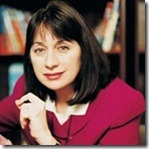 Dr. Maryanne Wolf
Dr. Maryanne Wolf
Dr.Maryanne Wolf and Dr. Mirit Barzillai ask a set of questions that probe in to the “future of reading”. With the onslaught of information overload, increasing distractions ( twitter, instant messaging, etc.) there are many possible ways the “the reading brain” is going to shape up in the future; “shape up” is the word used as we are never born to read or write anything. Unlike vision or language, reading has no generic program that unfolds to create an ideal form of itself. Rather, learning to read lies outside the original repertoire of the human brain’s functions and requires a whole new circuit to be built afresh with each new reader. The brain changes itself by building a versatile “reading circuit” out of a rearrangement of its original structures, such as visual, conceptual and language areas. In the last essay , the authors ask a lot of questions in this context,“How will the next generation of kids build a ‘reading circuit’ ”. Will the twitters/IM make the brain circuitry devoid of ‘deep-reading’ and instead build something completely new that is equipped to handle the kind of info overload that we are seeing ?
- We may already have within our grasp the tools to conceptualize that the “new readers” of the twenty-first century need: a differently evolving reading circuit, one that connects the existing expert deep-reading skills to the evolving information-processing skills in order to be able to use the resources of the twenty-first century external platforms of knowledge wisely and well. The task is to figure out how to get there. We will need many minds to plot this progression.
 Takeaway:
Takeaway:
The book is a nice collection of essays about “reading” by ten authors ; all of the essays have one common theme – Make time to deep-read in your busy schedule.